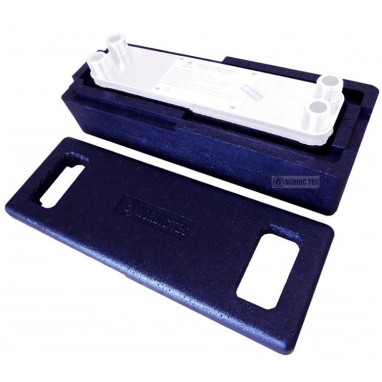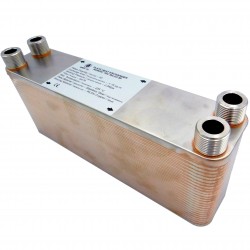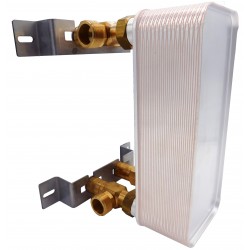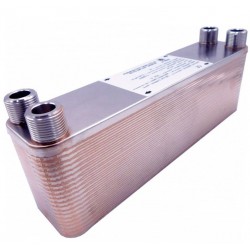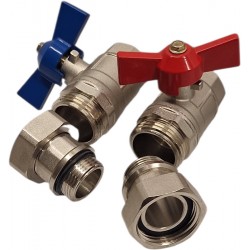Insulation IZ-Ba-23-30 for Plate Heat Exchangers
Thermal Insulation IZ-Ba-23-30 for Plate Heat Exchanger with 12 / 20 / 30 plates
Material: Polipropylen
Destinated for models:
- Heat Exchanger Ba-23-12 SLIM (315x73mm, 12-plate)
- Heat Exchanger Ba-23-20 (315x73mm, 20-plate)
- Heat Exchanger Ba-23-30 (315x73mm, 30-plate)
Insulation is destinated for heat exchangers by NORDIC TEC
Please note: We don't reply for questions about sizing insulation for exchangers by other brands.
Reference: IZ-Ba-23-30
Condition New
For what to insulate plate heat exchangers?
Plate heat exchangers (also called PHE) are used in many industrial and commercial applications to transfer heat between fluids. To optimize the performance of a PHE, it is worth to insulate it properly. The primary reason for insulating is to minimize heat loss of the heat transfer process.
When a plate heat exchanger is not insulated, the heat transferred from the hot fluid to the cold fluid can dissipate into the surrounding environment, which results in energy waste and higher operating costs (higher energy consumption). Insulating the HE can reduce this heat loss and improve the overall efficiency of our heating systems.
Insulation can also protect workers and equipment from the high temperatures generated by the heat transfer process, when the HE is used in industrial applications, especially with high temperatures. It can prevent accidental burns and limit the amount of heat that radiates into the surrounding area.
The type of insulation used depends on the application and operating conditions of the plate heat exchanger. Common insulation materials include mineral wool, fiberglass, and closed-cell foam. The insulation should be chosen based on its ability to withstand high temperatures, resist moisture, and maintain its insulating properties over time. Our polipropylen insulation boxes fulfil all the requirements of safety and efficiency and they are produced in Poland, Europe.
Overall, insulating a heat exchanger is crucial for improving energy transfer efficiency and reducing heating costs.
Why is it better to buy the insulation box with the heat exchanger and not after?
That's a question of a price. Buying a set (a heat exchanger + insulation) in most cases means better prices overall than buying the accessories separately.
IZ-Ba-23-30
2416 Items
New
No reviews
You might also like
